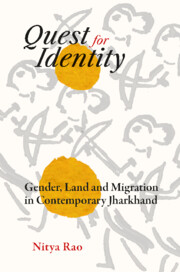10 - Mothers, Daughters and Well-Being: Contentment and Conflict amongst the Santals
Published online by Cambridge University Press: 26 July 2023
Summary
Research on ‘well-being’ has progressed from an exclusive focus on individual, ‘objective’ outcomes (such as literacy and schooling, health and nutrition, and the ability to work and earn an income, as conceptualised in the Human Development Report) to being ‘a process that comprises material, relational and subjective dimensions’ (White, 2010: 170). Varying with history, geography, across time, space and life cycle, the concept of well-being captures the dynamics of the relationships between these different elements in people's lives (White, 2010: 170).
However, a focus on binaries of poverty–wealth, well-being–ill-being, happiness–unhappiness persists in development discourses. Efforts to move people out of poverty (Narayan, 2009) often stress the material dimensions of people's lives, ignoring the relational, emotional and non-material, which are equally important for a person's well-being.
Families are major sites of gendered socialisation during childhood. Children observe the actions of their parents and as they grow older are socialised into gender roles, learning and reproducing, but sometimes challenging, particular roles and responsibilities. Relationships are crucial in this process – with parents, siblings, peers and others. One of the key concerns expressed by parents relates to the life chances and future well-being of their children. The normative expectation of ‘maternal altruism’, where mothers are primarily responsible for the care of children and maintenance of the household, however, poses a dilemma for women. While the well-being of her children is indeed a very important priority for a mother, she has to make choices: how far can she really be herself, how important is it to socialise the child, especially the daughter, to lead a life without bearing some of her own trials and tribulations, or is it preferable to sacrifice her own identity and possibly emotional well-being for the sake of the material well-being of her children and gaining a life of peace (cf. Ahmed, 2014)? Women have to negotiate functional boundaries and work out the extent to which deviations are permissible, within the larger context of patriarchy. When my own daughter was born, a dear friend of the family, now no more, sent me a congratulatory card, in which she wrote, ‘Never stop being yourself for the sake of your daughter. She will appreciate you for who you are, not what you gave up for her sake’.
- Type
- Chapter
- Information
- Quest for IdentityGender, Land and Migration in Contemporary Jharkhand, pp. 252 - 272Publisher: Cambridge University PressPrint publication year: 2024

